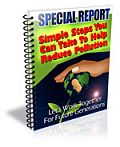Welcome to Composting Guide
Composting Food Waste Article

When Composting food waste
from:When composting the food waste from your home you will be helping to recycle and return nutrients to the environment that have been taken out at some point. If you love plants or have a garden that you love to see grow and produce fruits and vegetable for your enjoyment, you will want to be composting food waste. If you are composting food waste, you will be creating a great fertilizer or soil conditioner to be use in your plants, flowerbed, in-home green house or garden.
There are so many ways to go about composting food waste; you may have a hard time narrowing it down to the one that is best suited for your needs. You can choose from composting with worms, food waste composting, dog waste composting, composting plants and animal waste composting to name a few methods of composting to choose.
You can choose composting food waste indoors or outdoors. You can compost with a traditional composting bin, worm composting or even a composting toilet. You can be composting food waste from only your home or you can collect food waste from family, friends and neighbors to add to your composting bin.
There is pre-consumer and post-consumer food waste. Pre-consumer food waste is the easiest food waste to compost. Pre-consumer is the food waste from the preparation processes or damaged food bulk during processing of raw material foods, and has never been seen by the consumer. Pre-consumer food waste generally has been separated from the other waste and does not need any special handling to prevent the future compost from being contaminated. Pre-consumer food waste would be any food waste produced in processing plants, restaurant kitchens, farms, warehouses and even food waste lost during the transportation process. Post-consumer food waste is any food waste that is created by the consumer after it has reached the end-user consumer. The post-consumer food waste is usually subject t outside contaminants that must be separated before being added to any container that is composting food waste.
The food industry benefits greatly from composting food waste. The benefits that the food industry is impacted by from the composting food waste are great and vast. Composting food waste by business reduces solid waste cost, the waste of large quantities of recyclable raw products is reduced and businesses can educate the consumer on composting food waste benefits. In addition, businesses can use composting food waste as an environmentally friendly marketing tool and marketing tool as being an assistant to local farmers. It also closes the food waste loop by returning it to farmers and most important, it reduces the need for more landfill space.



